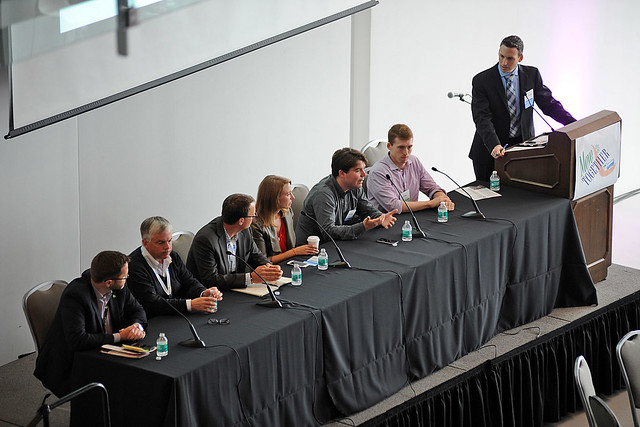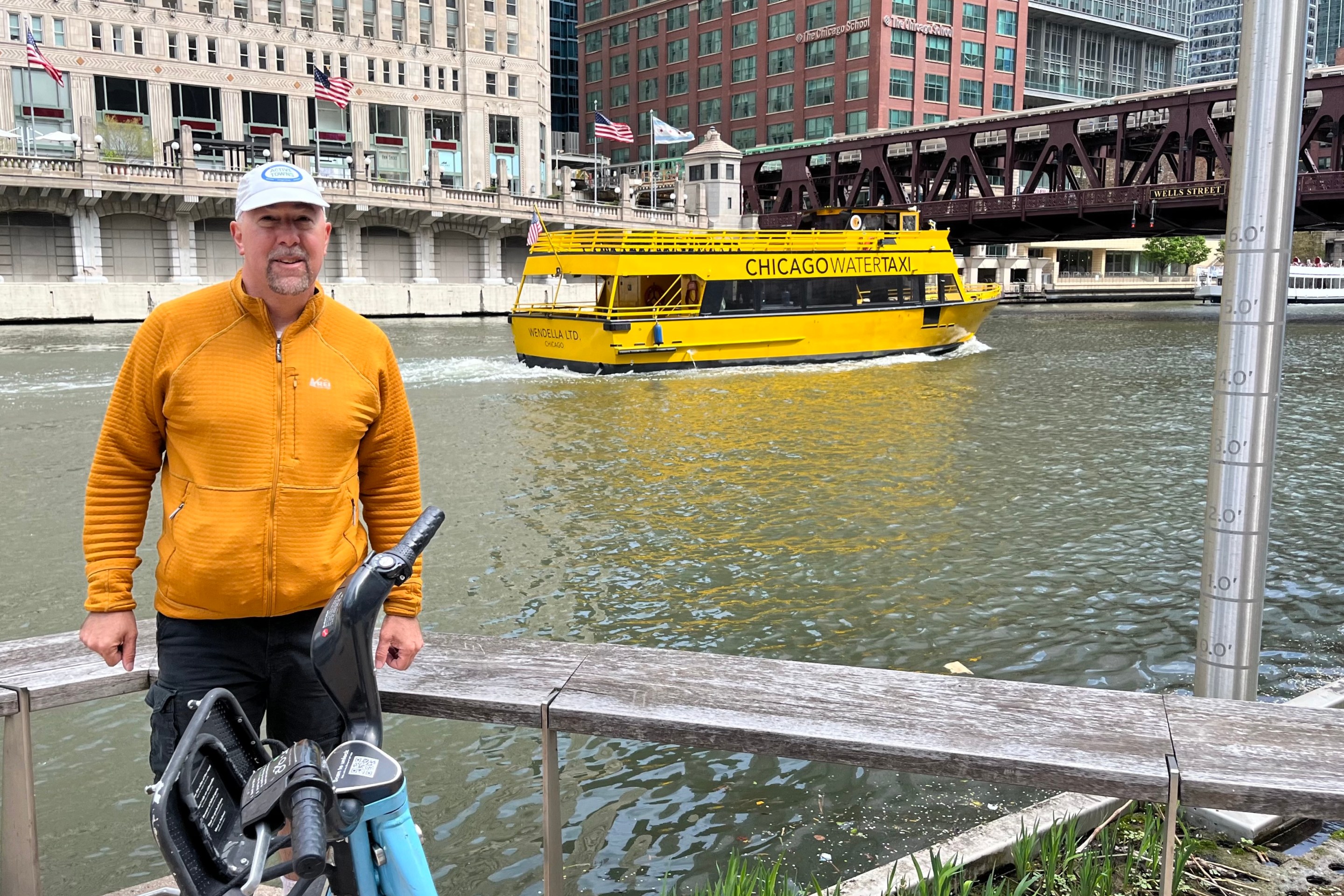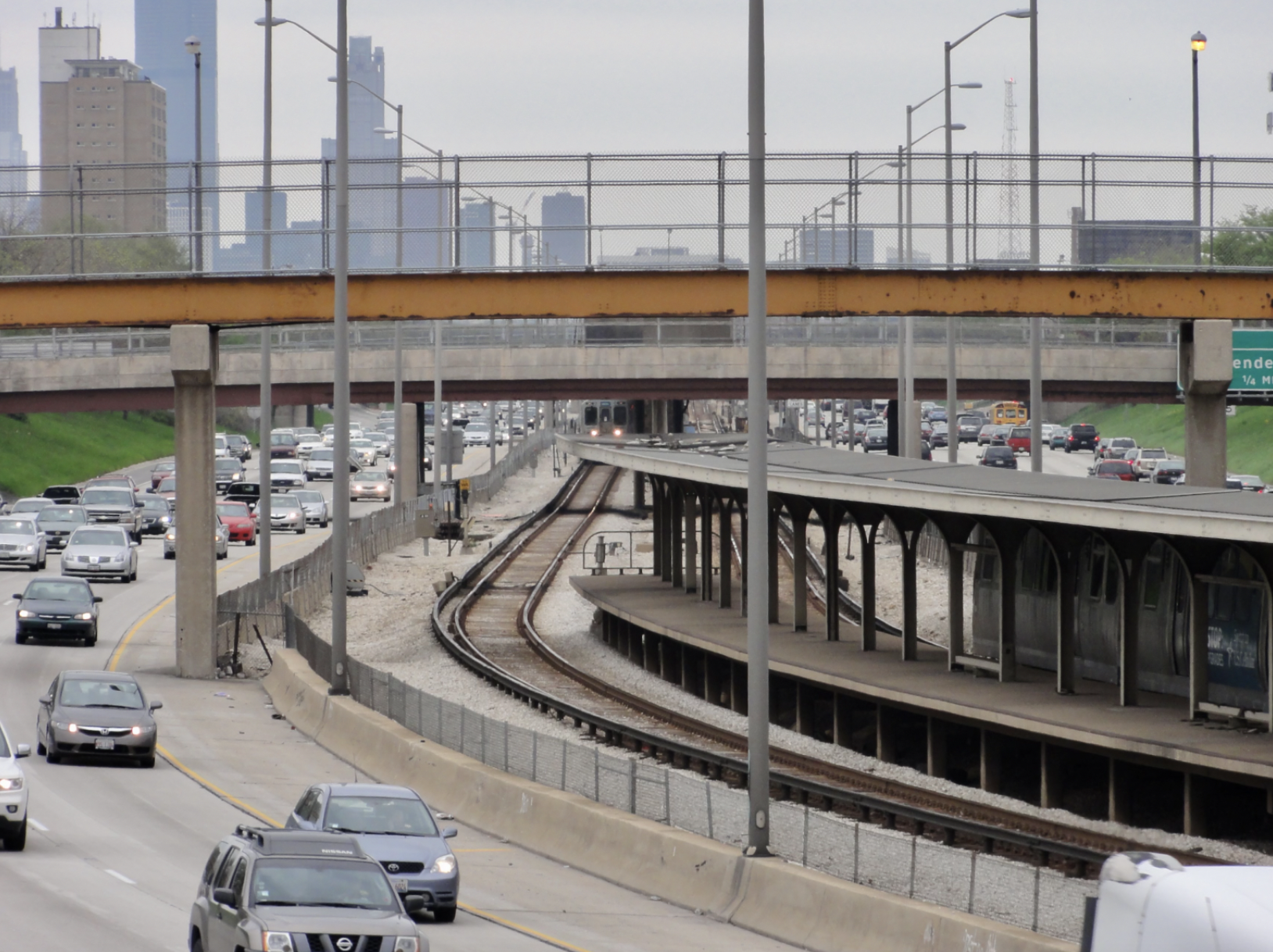How Shared-Mobility Companies Learned From Their Mistakes
5:07 PM CDT on September 30, 2015

This week, civic leaders, entrepreneurs, and academics from around the country gathered in Chicago for the “Move Together” conference, hosted by the locally based think tank the Shared-Use Mobility Center. The organization was launched one year ago to brainstorm ways that bike-share, car-share, ride-share, and other new mobility tools can become a major force for increasing transportation access, fighting congestion, and improving air quality. On Monday, SUMC announced a new goal of taking one million cars off the road in the U.S. by scaling up shared mobility and transit in 15 regions, including ours.
“Chicago has historically been a hub for transportation innovation,” director Sharon Feigon told me. “We wanted to showcase the great things happening here and bring in innovators from across the country so they could see the potential of expanding here, too. At the same time, we also wanted to bring attention to the major issues that Chicago still faces regarding inequality in many of our communities, the difficulty of accessing jobs and how shared mobility can help meet these challenges.”
Feigon added that although Chicago has an extensive fixed-route transit system, travel patterns have changed over the years and there are service gaps to fill. “Shared mobility can help address these issues, reduce transportation costs and make it possible to live well without owning a car.”
During the panel “From the Trenches: What It Takes to Move Up,” reps from six different shared-mobility companies discussed how they were able to expand their business models to many different cities. Clayton Lane, board chair for SUMC moderated. One of the most interesting parts of the discussion was when Lane asked the panelists to talk about mistakes that their companies made that others could learn from.
Car2go, a one-way, point-to-point car rental service that exclusively uses two-seater Smart cars, was represented by business development manager Walter Rosenkranz. “With all start-ups, you go through growing pains and learn lessons,” he said. “Since we’re talking about scale, with a point-to-point system, you can’t really tiptoe into a market. You have to be able to provide services where people are and where they want to go.” He added that it’s necessary to offer enough vehicles within that area to make it convenient for customers to find them.
B-Cycle, a bike-share company partly owned by Trek, with systems in 29 U.S. cities and Santiago, Chile, was represented by company president Robert Burns. He said over the years he’s learned that strong support from politicians is key for setting up successful bike-share networks. “You need the mayor to say to the city workers, ‘This is coming, and I’m putting in, so give them the permits [for the stations].
Burns added that he’s discovered bike-share systems don’t have to be big to succeed. “In Houston, we learned that you can start small if you’ve got political commitment and a competent local operator,” he said. “But you need to keep the stations close together so people can ride through the Houston humidity and actually go from one place to another.”
Motivate, formerly Alta Bicycle Share which operates bike-share in 10 North American and Australian cities, including Chicago, was represented by vice president Justin Ginsburgh. “We’ve really learned, as a business, just how complex bike-sharing is,” he said, noting that technology and supply chain issues are major challenges in running a system. “[Alta] started as a small operation in Portland. Now we’re about three times bigger, with everybody in the same room in Brooklyn, huddled together to support these systems that are out there throughout the country.”
Lyft, which operates ride-sharing in 65 U.S. cities, was represented by director of transportation Emily Castor. She said that, early on, her company made the mistake of trying to build markets in cities by guaranteeing drivers would earn a certain hourly rate, but it took a really long time to get those markets to a self-sustaining level.
They soon found it was more effective to offer potential customers two weeks of unlimited ride credits, and compensate drivers every time a new person joined the system. “The drivers were incentivized to be much more entrepreneurial about positioning themselves in places where they were likely to get riders, and passengers were encouraged to build a habit.”
Getaround, a peer-to-peer car-sharing service that operates in six U.S. cities, was represented by Padden Murphy, head of public policy and business development. One lesson the company learned was to say no to people who wanted to rent out their cars but lived outside of the established service areas. “It’s a great problem to have, when you have too much demand,” he said. “But when you go to get a Getaround or a car2go, or a Lyft and it’s not there, that’s not a great user experience.”
Nowadays, you can unlock a Getaround car automatically but, early on, the renter and the customer had to meet up in person to exchange keys. “That was a really horrible user experience,” Murphy said. “In order to be able to scale, you have to keep up with the speed of consumption.” In the age of ubiquitous smart phones, he said, “If you can’t get the thing that you need from a couple of click on the phone, then you’re not going to return to the service.”
Zipcar, a car-sharing serving that operates in many cities across North America and Europe, was represented by spokesman Justin Holmes. “I think in our 15 years of history, we’ve never made one single mistake,” he joked. “For us, I think the challenge has been been how to accelerate our growth.” But he said said the future looks bright for the shared-mobility industry in general. “I see tremendous opportunities here for all of us.”
In addition to editing Streetsblog Chicago, John writes about transportation and other topics for additional local publications. A Chicagoan since 1989, he enjoys exploring the city on foot, bike, bus, and 'L' train.
Stay in touch
Sign up for our free newsletter
More from Streetsblog Chicago
Today’s Headlines for Thursday, April 18
Roger that! Streetsblog SF editor Roger Rudick offers constructive criticism of Chicago’s downtown bike network
"There were blocks that felt very safe and very secure," he said. "But then you're immediately – voom! – disgorged into three lanes of moving traffic with no protection."
City announces $2M federal grant to address harms caused by I-290 by improving walk/bike/transit access
The Mayor's Office says the money will fund "improvements for people walking and bicycling on existing streets and paths surrounding and crossing the corridor."


